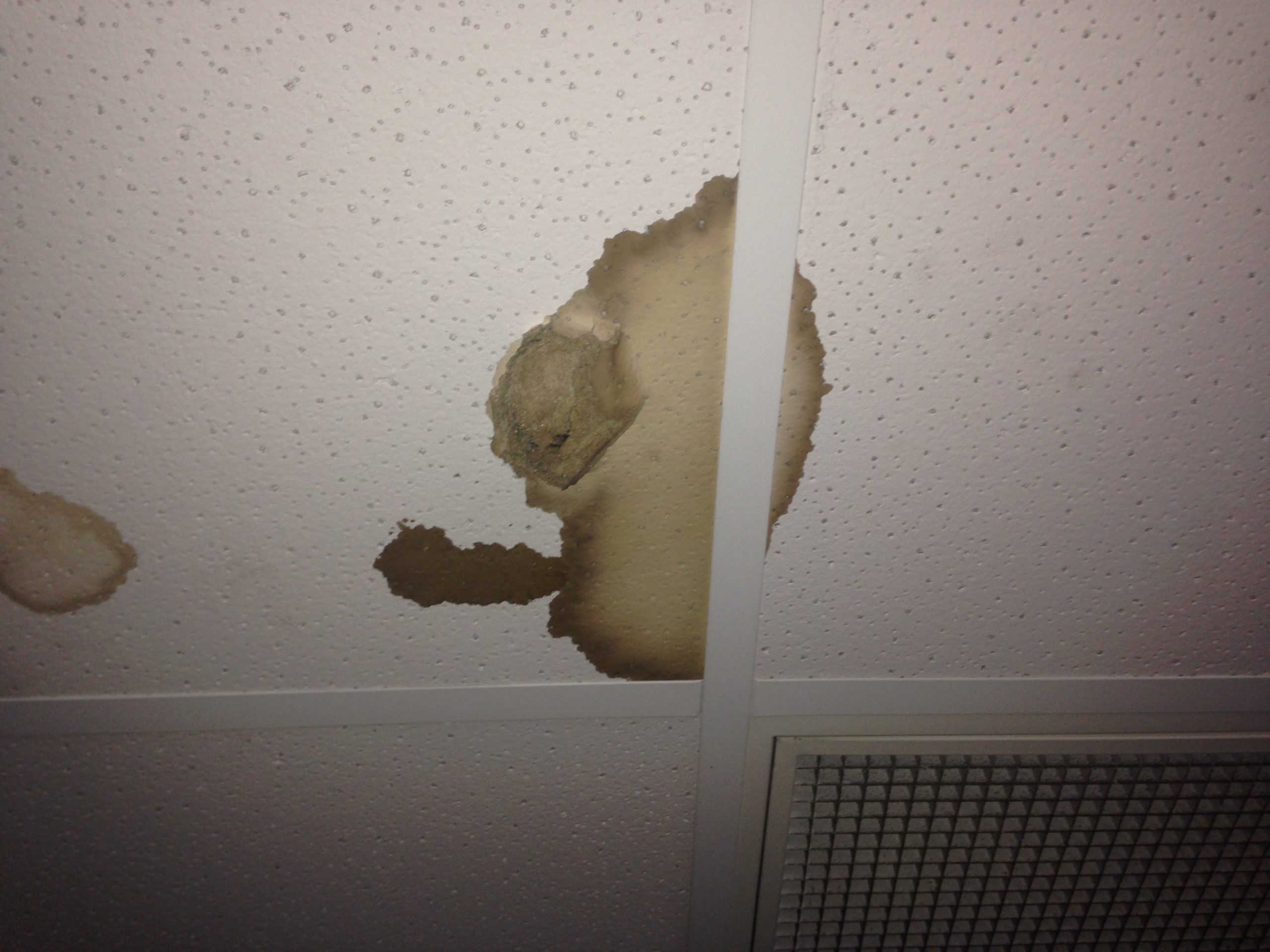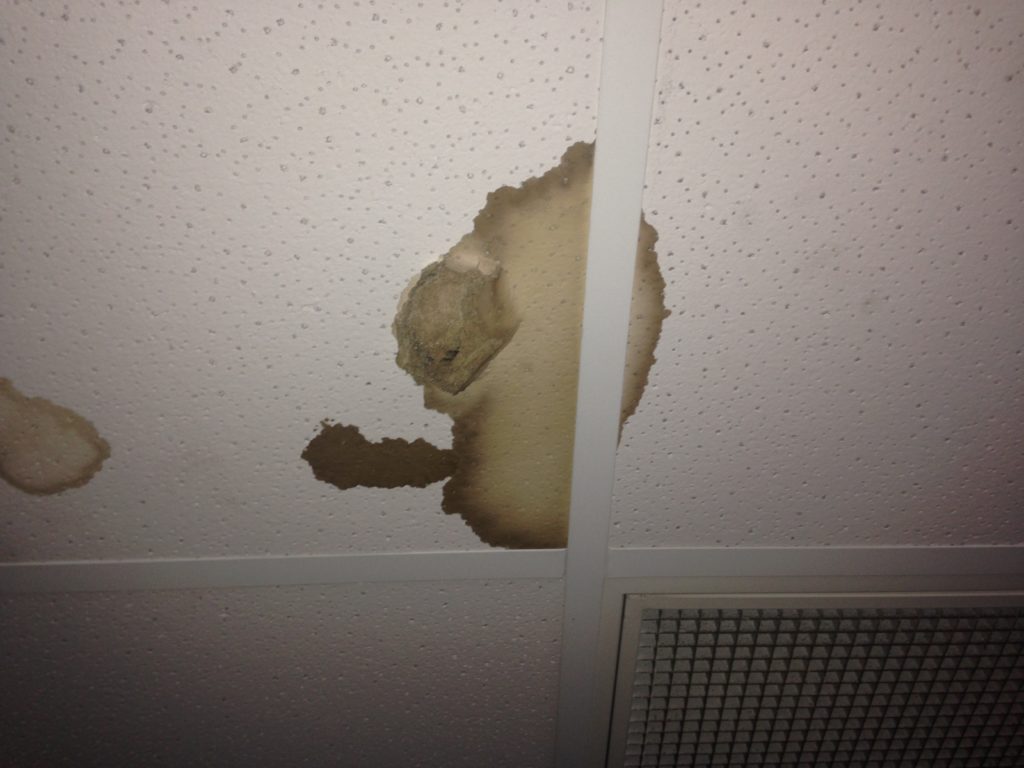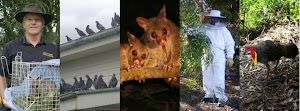
The first thing that homeowners usually notice is noises in the roof. Other signs are loss of power to some equipment due to chewed cables, marks on the ceiling from animal urine, or movement of downlights caused by animals sitting atop the lights. All these signs could be caused by either rodents or possums. However there are some characteristic differences in damage that can be explained by the different animal behaviours.

Possums will sleep in one place
Which over time may result in wearing a hole through plasterboard. Unlike rats and mice they produce a large volume of urine so stains on a ceiling will usually indicate possums. That factor also creates a distinctive possum smell, which is easily recognised (with a bit of experience!). Rats and mice constantly move around except when nesting. Their droppings tend to be scattered everywhere within a roof, whereas possum droppings are usually found in small “clusters”, often around their chosen sleeping place.
Since possums can weigh over 4 kilos it is not surprising that homeowners usually hear noises from them moving around, especially at dusk and dawn as the possums get ready to go outside or return to their sleeping places. However some loud noises are more characteristic of rats because when they get excited, rats will leap from truss to truss inside the roof space and sometimes deliberately land on the ceiling with a loud thump as they scamper about. This is especially noticeable in roof spaces without insulation.
Both rodents and possums do need to chew items like wood to control the growth of their teeth, but for rodents this seems to be far more important. Movement and rubbing sounds are often from possums, while chewing sounds, lost electrical power, and water leaks, are more likely to be rats.
However, rodents are secretive and usually only make noises when the house is quiet. So if the homeowner knocks on a wall, the animal noise will usually stop for many minutes if it’s a rat. A possum will stop briefly, listen, and then continue with chewing or moving around within a few minutes. Noises during the daytime are usually a possum stumbling about because rodents can hear the noises made by the humans below and they try to keep quiet.
As mentioned above, possums go outside at dusk and return around 4-5 am, so noises at those times are typically from a possum. This also means that when the house is really quiet between 10pm and 3am, possums are usually up in the trees and outside. So unless you hear one running across the top of the roof, any noises you hear in the early hours of the morning are almost certainly rodents.
However even these general guidelines are not reliable: during cold, wet weather possums bring food into the roof space so they don’t need to go outside for a night or two; that results in unusual and often loud noises inside the roof at midnight.
So if you have noises in your roof call in the experts from Peter the Possum Man to investigate!






